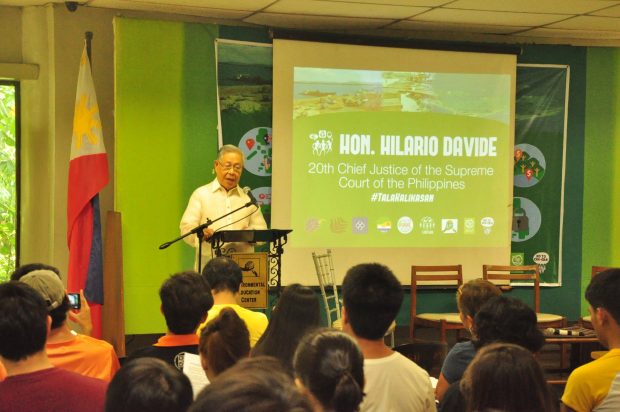IBON debunks economic Cha-cha movers’ claims on FDI
Claims that changing the supposedly restrictive economic provisions of the 1987 Constitution and liberalizing foreign direct investment (FDI) into the country will help economic recovery and lead to development are unfounded. On the contrary, said research group IBON, further FDI liberalization will have long-term adverse impacts on national economic development.
In its Birdtalk semi-annual discussion of economic and political trends, IBON debunked three major myths about FDI and development.
First, increasing FDI is not in and of itself necessary for development. South Korea and Taiwan are the last newly-industrialized countries (NICs) to graduate to developed country status. They did this in the 1970s and 1980s with less FDI than the Philippines is getting today, according to data from the United Nations Conference on Trade and Development database (UNCTADStat).
The two NICs had growth rates averaging some 7-10% in the fifteen years between 1970-1984, especially on the back of rapid industrial development. (See Table) They did this with FDI inflows over that period averaging just 0.5% of gross domestic product (GDP) in the case of South Korea and just 0.4% in the case of Taiwan.

In stark contrast, FDI inflows to the Philippines are over three-fold these and averaged 1.6% of GDP in 2005-2019 but with growth at an annual average of only 5.8 percent. In 1984, FDI inward stock was equivalent to just 1.7% of GDP in South Korea and 5% in Taiwan. In contrast, FDI inward stock in the Philippines was already as much as fourteen-fold that and equivalent to 23.1% of GDP in 2019.
These indicate that the two East Asian NICs rapidly developed during their break-out period in the 1970s and 1980s while having much less FDI than the Philippines today. South Korea and Taiwan are today still less reliant than the Philippines on FDI, in relative terms. Measured as share of GDP, FDI inward flows and stock to them are smaller than FDI to the Philippines over the period 2015-2019.
Second, FDI is not in and of itself sufficient for development. Despite hysterical claims that the Philippines is being left behind in the FDI race, FDI to the country has soared. FDI inward flows have increased over thirty-fold from an annual average of US$187 million (equivalent to 0.5% of GDP) in 1980-1984 to US$6.3 billion (2% GDP) in 2015-2019.
This includes manufacturing FDI tripling from an annual average of US$286 million in 2000-2004 to US$728 million in 2015-2019, according to data from the Bangko Sentral ng Pilipinas (BSP). Yet manufacturing’s share in GDP has actually fallen from 22.5% in 2000 to 18.6% in 2019, with the share of manufacturing to total employment also falling from 10% to 8.5% over the same period.
This includes US$8.3 in foreign investments by Intel, Hanjin and in the Malampaya project. Yet despite headline-grabbing billions of dollars in investments and exports and as much as around 35,000 in jobs created over decades in the country, the Philippines has still not developed any Filipino electronics, shipbuilding or natural gas industries.
Third, increased FDI may not even be immediately forthcoming while the constriction of the policy space for economic development is going to be foreclosed. Economic cha-cha proponents decry the Philippines supposedly having among the most restrictive FDI policy regimes in the world. Yet there does not in general appear to be any strong correlation between FDI restrictiveness and FDI inward flows.
Plotting FDI inward flows as a share of GDP against the FDI Restrictiveness Index of the Organization for Economic Cooperation and Development (OECD), both for 2019, does not even support the idea that less restrictive economies will receive more FDI. (See Chart) The uncertain effect on FDI flows is made more uncertain by how UNCTAD also reports FDI inflows generally falling even before the pandemic hit from US$2 trillion in 2015 (2.7% of GDP) to US$1.5 trillion in 2019 (1.8%).

On the other hand, removing the last remaining protections against FDI through economic Cha-cha will make the nationalist and pro-Filipino economic policies needed even more difficult to put in place. Potentially powerful Constitutional provisions to regulate foreign investment for development – as the currently developed countries have all done in their respective periods of break-out progress – will be lost.
IBON stressed that the economic arguments for lifting restrictions on foreign ownership in crucial areas of the economy – natural resources, land, public utilities, education, mass media and advertising, and any identified strategic enterprises – need to take much greater consideration of historical facts and the current global context.
The research group said that the economy’s development lies in using the protections in the Constitution to gain from foreign investment, not in taking away the protections and giving self-interested foreign investment free rein over the domestic economy. Foreign capital can contribute to development but IBON stressed that responsible government intervention and regulation is needed to create meaningful linkages and long-term benefits for the economy. #



